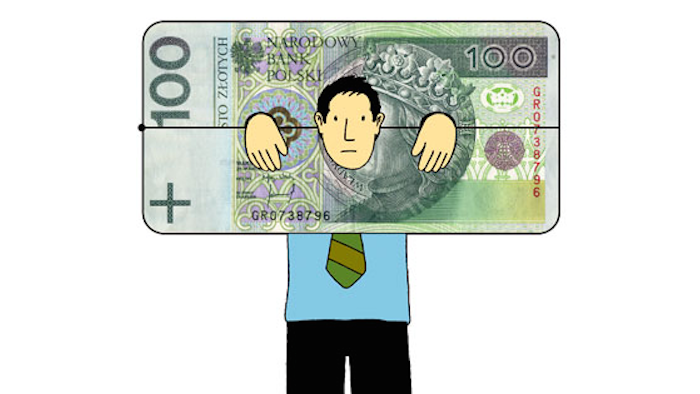The decision of the Swiss central bank to abandon its currency cap on 15 January has cast a chill in Poland, Gazeta Wyborcza reports. Following the news, "the Swiss franc took off": within several hours, its rate rose from 3.5 zlotys to 5.2 zlotys (the euro is worth around 4.2 zlotys). The daily newspaper notes:
it remains steady for the time being at 4.3 zlotys. Monthly repayments for people who took out mortgages in Swiss francs have unexpectedly risen. The average monthly mortgage repayment in Poland is 500 euros, but this now stands at 570 euros for those who took out debts in Swiss francs.
As the New York Times observes, "In Poland, there were 562,487 home loans in francs in 2013, representing almost a third of the total number of mortgages." This means that a large number of households saw the value of their debt rise substantially in just one day. The American newspaper interviewed borrowers who had decided, between 2004 and 2010, to take out a loan in Swiss francs because, as one remarks, "everybody was doing it." The daily explains that "before the financial crisis gripped Europe, banks heavily marketed loans in Swiss francs," offering much better rates than for loans in zlotys. It gives the example of a man who repays a loan at 4.65% interest; had he chosen a loan in zlotys he would have paid 10-12%.
At the moment, “they are terrified, they are scared, and they pray that the government does something”, the newspaper notes; one of those interviewed claims to have even considered "killing herself". The New York Times recalls that Poland is not the first country to find itself plunged into such drama:
“Last year, Hungary, facing a similar problem, forced banks to convert home loans denominated in francs to Hungarian forints at below-market rates. The country was criticized for the policy, which chilled the banking sector. […] Poland had considered a similar path. The country’s prime minister, Ewa Kopacz, said […] that she would side with the people over the banks. [But then] Mateusz Szczurek, the finance minister, rejected the Hungarian approach saying “It isn’t the role of the government to be removing all possible risks people face.”
However the Polish administration and market actors are employing other measures to calm investors. As Gazeta Wyborcza highlights,
The government, the Financial Supervision Authority (KNF), the Office of Competition and Consumer Protection (UOKiK), and the banks themselves are attempting to come to borrowers' rescue. The banks have lowered the borrowing spread and have passed on negative Libor rates to consumers, with the result that their clients' interest rates have reduced.
But the Warsaw newspaper questions the soundness of assisting those who have taken out a loan in francs:
Are those Poles who took out mortgages in Swiss francs really the most disadvantaged? It is not clear that they are. Someone who took out a loan of 75,000 euros in zlotys in 2006 would now be paying larger monthly instalments. […] If he had taken out a loan in Swiss francs over 30 years, it is probable that it would ultimately work out cheaper.
Was this article useful? If so we are delighted!
It is freely available because we believe that the right to free and independent information is essential for democracy. But this right is not guaranteed forever, and independence comes at a cost. We need your support in order to continue publishing independent, multilingual news for all Europeans.
Discover our subscription offers and their exclusive benefits and become a member of our community now!












